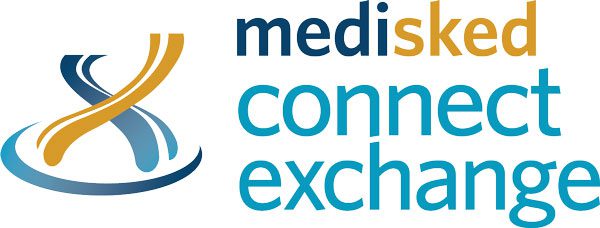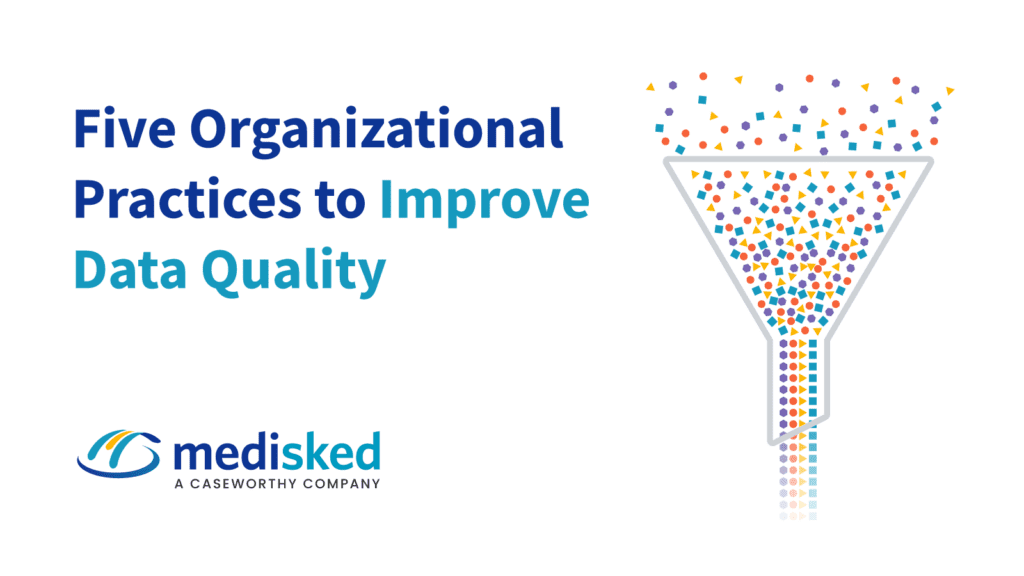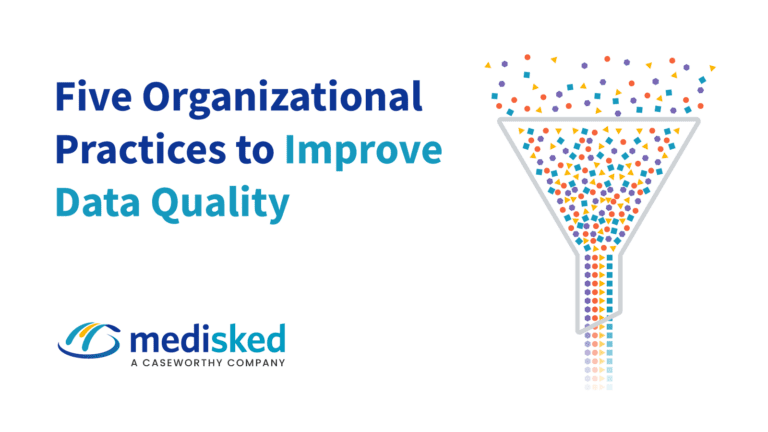Data is king, and organizations are increasingly expected to provide data-led insights to their internal and external stakeholders.
Meanwhile, with multiple groups relying on the data your organization maintains to make the right decisions for those they support, erroneous data can have devastating and costly consequences.
You’ve chosen a HIPAA- and HITRUST-compliant platform to manage and store this data, but now what? Where does an organization start in ensuring that the data they collect is complete and accurate? Here are five considerations:
1. Data Governance
Limiting access supports data quality by restricting who can add and edit information in an individual’s record. These employees are already aware of the best practices for maintaining this data and will help promote good data hygiene. MediSked Coordinate and Connect offer robust user role permissions that allow organizations to restrict employee access to specific data and limit write access to records on an as-needed basis.
2. Data Standardization and Documentation
With a clear ‘why’ in mind, organizations should have data standardization and documentation policies that clearly instruct employees on how to enter specific data points, such as phone numbers, unique identifiers, addresses, etc. When standards are established and enforced, this greatly reduces the amount of time needed to analyze records. MediSked Coordinate’s configurable widgets offer several templated options for common data entries like dates, phone numbers, customized dropdowns, NPI numbers, social security numbers and more.
3. Data Stewardship and Responsibility
Maintaining data accuracy is a team sport that requires everyone to be on guard for inaccuracies and inconsistencies. If you see (or hear) something, say something! Did one of your clients move to a new home? Update their address. Did they provide a new cell phone number? Add it to their record! Your Care Management staff is already responsible for a lot, so having a dedicated team of Data Stewards is of great benefit to your organization. Consistent investment in keeping data current, accurate and clean will save time and frustration in the long term.
4. Training and Awareness
Very little is more effective than proper training and awareness of staff around the importance of data integrity. Entering an incorrect address, or not updating a phone number can have costly consequences for your organization and the well-being of the individuals you support. Frequent communication of the ‘why’ will help reinforce the necessity of maintaining good data.
5. Regular Data Audits and Quality Checks
While your staff are on the front lines of maintaining contact with their caseloads and ensuring that information is up to date, you should also have policies and procedures in place to regularly review your data. Having staff review addresses once or twice a year, or reviewing the linked contacts to make sure they are still current are all steps that you can take to keep your data from getting stale.
With this in mind, your organization will continue to grow a wealth of quality data that can be used to report on and help reveal insights and data-driven decision-making, while improving efficiency and outcomes for those you serve.
To learn more about MediSked’s solutions to help your organization ensure data quality, request a demo here.








